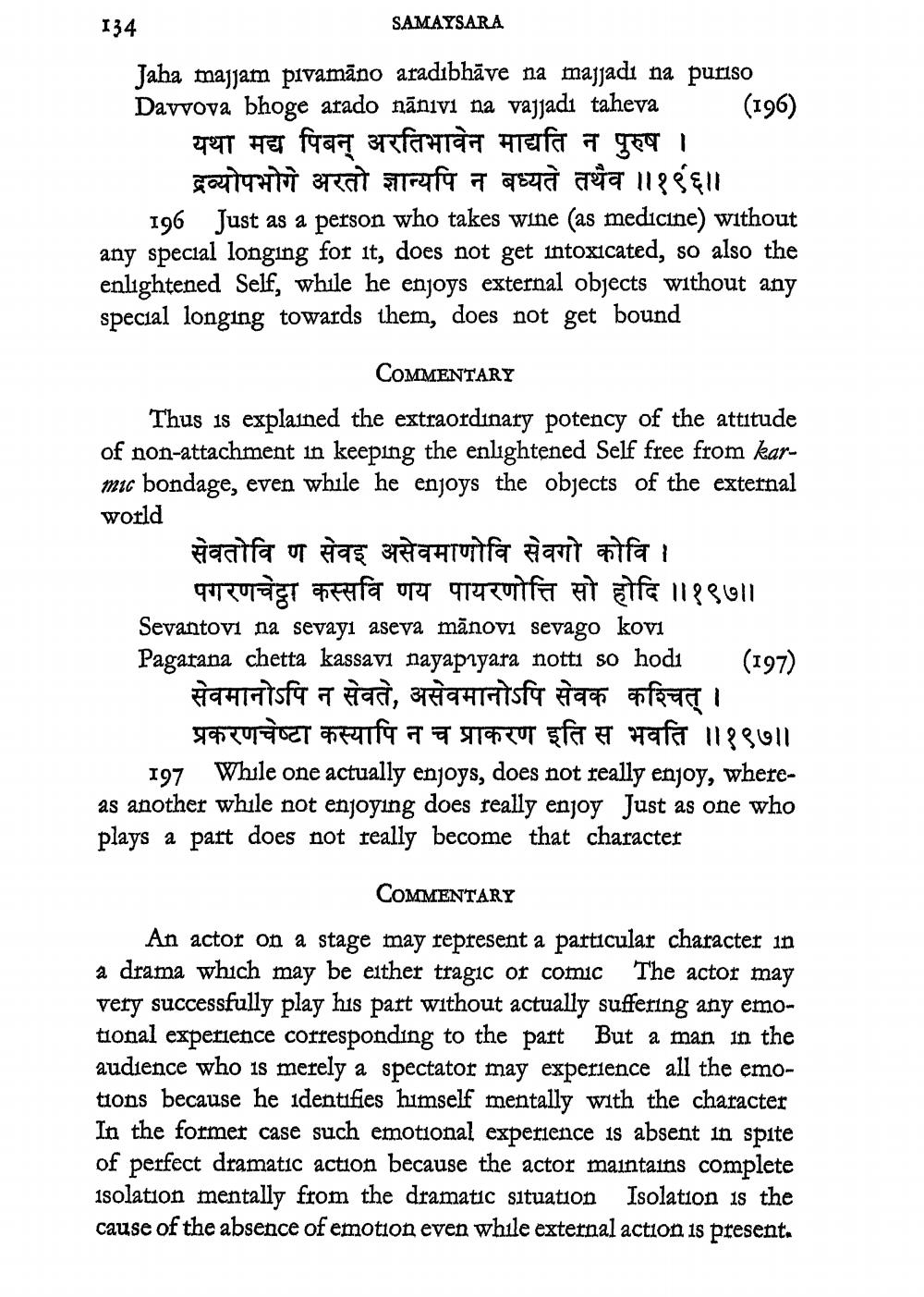________________
SAMAYSARA
134
Jaha majjam pivamāno aradıbhāve na mnajjadi na puriso Davvova bhoge arado nānivi na vajjadi taheva (196)
यथा मद्य पिबन् अरतिभावेन माद्यति न पुरुष ।
द्रव्योपभोगे अरतो ज्ञान्यपि न बध्यते तथैव ॥१९६॥ 196 Just as a person who takes wine (as medicine) without any special longing for it, does not get intoxicated, so also the enlightened Self, while he enjoys external objects without any special longing towards them, does not get bound
COMMENTARY
Thus is explained the extraordinary potency of the attitude of non-attachment in keeping the enlightened Self free from karmic bondage, even while he enjoys the objects of the external world
सेवतोवि ण सेवइ असेवमाणोवि सेवगो कोवि ।
पगरणचेट्टा कस्सवि णय पायरणोत्ति सो होदि ॥१९७॥ Sevantovi na sevayı aseva mānovi sevago kovi Pagatana chetta kassavi nayapıyara notti so hodi (197)
सेवमानोऽपि न सेवते, असेवमानोऽपि सेवक कश्चित् ।
प्रकरणचेष्टा कस्यापि न च प्राकरण इति स भवति ॥१९७॥ 197 While one actually enjoys, does not really enjoy, whereas another while not enjoying does really enjoy Just as one who plays a part does not really become that character
COMMENTARY An actor on a stage may represent a particular character in a drama which may be either tragic or comic The actor may very successfully play his part without actually suffering any emotional experience corresponding to the part But a man in the audience who is merely a spectator may experience all the emotions because he identifies himself mentally with the character In the former case such emotional experience is absent in spite of perfect dramatic action because the actor maintains complete isolation mentally from the dramatic situation Isolation is the cause of the absence of emotion even while external action is present.




